Relevant Overviews
- Bluesky and the ATmosphere
- Content Strategy
- Fediverse
- Online Strategy
- Online Community Management
- Social Media Strategy
- Content Creation & Marketing
- Digital Transformation
- Blockchain, Crypto, NFTs etc
- Communications Tactics
- Social Web
- Media
- Politics
- Communications Strategy
- Science&Technology
- Business
"Standard.site provides shared lexicons for long-form publishing on AT Protocol. Making content easier to discover, index, and move across the ATmosphere" - by the makers of leaflet, pckt & offprint - a good example of how builders can just collaborate on the ATmosphere without drama: "The standard grows when builders identify shared needs and ali…
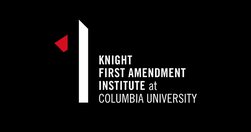
Given the myriad problems posed by social media platforms - content moderation, disinformation, censorship, privacy, anti-trust - this article "proposes an entirely different approach... that enables more free speech, while minimizing ... trolling, hateful speech, and large-scale disinformation efforts... also might help users ... regain control o…
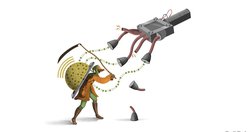
Overview of efforts to put data back into the hands of people. "platforms’ business models depend on network effects and scale to keep users engaged and to sell more advertising... a culture of virality that... poisons public discourse." Moreover, their data dominance is stifling competition & innovation. " So trustbusters are on the warpath... An…

ActivityPub separates content from platform. Posts from one platform propagate to other platforms, and users don’t need an account on every platform ... for ex., YouTube clone PeerTube and Mastodon both implement it, so is Mastodon user A follows PeerTube user B, B's new videos will appear in A's Mastodon feed. A can even comment on it from Mastod…

In the US, radio began as a free-market free-for-all. More than five hundred radio stations sprang up in less than a decade to explore the possibilities... 40 percent were noncommercial... network of interlinked stations playing local and national content supported by local and national advertising, became dominant players...Soviet Union... ideolo…

The web was designed to bring people together and make knowledge freely available. Everyone has a role to play to ensure the web serves humanity. By committing to the following principles, governments, companies and citizens around the world can help protect the open web as a public good and a basic right for everyone.
platforms like Facebook have ... amassed unprecedented gatekeeping powers ... Can new decentralized systems with no single point of control... be a remedy? A new report ... concludes that “protecting the future of speech online involves not only these ambitious experiments in decentralization, but the cultivation of an ecosystem of competing publi…
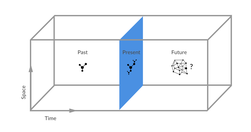
Blockchains and tokens provide two crucial puzzle pieces for .. the decentralized internet... Blockchains ... allow many different people to ... agree upon information without having to trust each other... Tokens, meanwhile, enable incentives across national and company lines... to create private economies around open platforms...

The open internet is a powerful tool in the fight against discriminatory mass surveillance... democracy’s antidote to authoritarianism... where the voices of dissidence that have always been watched, can watch and talk back.

Facebook ... can never be, a platform where people have the power to build anything... the company’s main focus ... analyzing your data and showing you ads in exchange for advertiser’s money. A future where Facebook is the global social infrastructure, is a future with no refuge from advertising and number crunching... the future of social media …
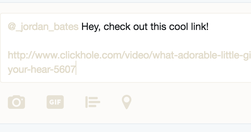
if you’re having a conversation with your friend, @person@custom.website, and another user from custom.website wants to chime in, they will be invisible.... how does one end up on this blacklist? ... mastodon.social’s community policy:... your social graph is not portable between platforms ... first principle of a workable, future-proof social ne…

The internet freedom agenda presumed the benefits of the free flow of information only cut one way: in favor of open societies, values, and ideals. But we’re now seeing that its destabilizing effects cut both ways... The open internet creates an asymmetric threat... rather than the global village ... mid-21st century internet might ... be a feder…

The war for the open internet is the defining issue of our time... By the end of this article, you’ll understand what’s happening, the market forces that are driving this, and how you can help stop it.
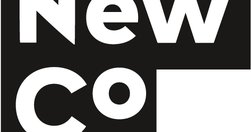
we lost what was Good about the early web, and ceded it all to the platforms.

when I saw the potential of the Internet, I thought it would be solved. The web would allow us to come together, not just across the world, but across the park, across racial lines, across our many divides... everything turned upside down. The open communication network we thought we were building turned into a hunting ground for trolls and spamme…
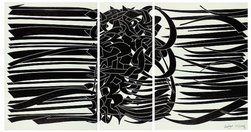
Decline of text in favour of videos means more Trumps and Berlusconis around the world... the internet which was the last word-centred public space after the decline of print journalism, is capitulating to the television format... public opinion in the age of television is more a set of “emotions rather than opinions, which would account for the …

All silos are not equally silo-y.... Twitter is a silo, but I can reliably point to a tweet from outside Twitter... we could come up with a Consumer Reports-like rating for all sites that indicates how much they participate in the open web at a content level.
Enter the new editors of the Internet: giant, centralized tech companies that have created platforms... notably Facebook and Apple — want to be the newsstands of tomorrow: the place we go, inside their own ecosystems, to get our news and information... journalism organizations feel they have no alternative but to be part of those ecosystems. This …

Platforms are eating publishers... The idea that Facebook and its ilk could act as information gatekeepers is also a bleak prospect... Facebook wouldn’t allow The New Republic to create an ad for an innocuous piece on medical marijuana ... If Facebook is squeamish about medical marijuana now, imagine the state of the fourth estate once controversy…
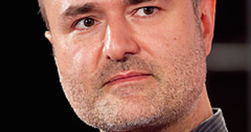
Gawker Media CEO Nick Denton was an extreme skeptic of publishers relying too heavily on Facebook. Now he's ... “all in” on publishing directly to Facebook with its Instant Articles program, a backtracking on Denton’s well-publicized lament that publishers are too reliant on platforms...Facebook, with its deep pool of accurate user data, can help …

By the time Cameron wrote “Orbital Content” in April of 2011, almost all visits to A List Apart and zeldman.com were triggered by tweets and other third-party posts... SO JUST WHY are we afraid of Medium?

Over the next few years, there is no doubt content and attention will continue to shift from tens of millions of web sites to a few centralized networks that people access via apps

Mark Zuckerberg proves not to be a fan of links... On Facebook, he doesn’t encourage you to link. On Instagram, he has simply forbidden them. He is quashing the hyperlink, thereby killing the interconnected, decentralized, outward network of text known as the World Wide Web. Facebook likes you to stay within it. Videos are now embedded in Faceb…
For the purpose of media pluralism, an emerging concern is how to ensure that the activities of these powerful platforms do not lead to a reduction in the quantity and quality of content actually available to consumers, and/or do not undermine democratic communication (e.g. through the suppression or arbitrary selection of information). Their …
the concerns and questions new information intermediaries bring to the table are explored, particularly in regards to the effect they have on media diversity. Additionally, Helberger looks into the regulatory options for safeguarding media pluralism and regulating these new gatekeepers, who are increasingly in control of consumer data. This art…
Get with the community; The death and rebirth of comments: The death of the open web?

...with iOS 9 and content blockers, what you're seeing is Apple's attempt to fully drive the knife into Google's revenue platform.... So it's Apple vs. Google vs. Facebook, all with their own revenue platforms. Google has the web, Facebook has its app, and Apple has the iPhone. This is the newest and biggest war in tech going today. And the …

"It's a discussion that's been running for a long time, but has kicked into overdrive because of Apple's release of a new operating system for iPhones and the launch of new services like Facebook Instant Articles and Apple News. And it's something you'll be hearing more and more about if you read things online..." Good observation: "if content …
Blogging has never been easier but getting read has never been harder... The problem isn't freedom or openness but distribution... you might post it on Facebook or Google Plus. Your friends might see it ... (though this is largely random) and they might share it ... You might post it on LinkedIn and your network might see it ... and LinkedIn migh…
My first subscribers, surveyed last week, were equally split between the diverse formats and styles of my first four editions, so here’s a 5th.
Relevant Overviews
- Bluesky and the ATmosphere
- Content Strategy
- Fediverse
- Online Strategy
- Online Community Management
- Social Media Strategy
- Content Creation & Marketing
- Digital Transformation
- Blockchain, Crypto, NFTs etc
- Communications Tactics
- Social Web
- Media
- Politics
- Communications Strategy
- Science&Technology
- Business